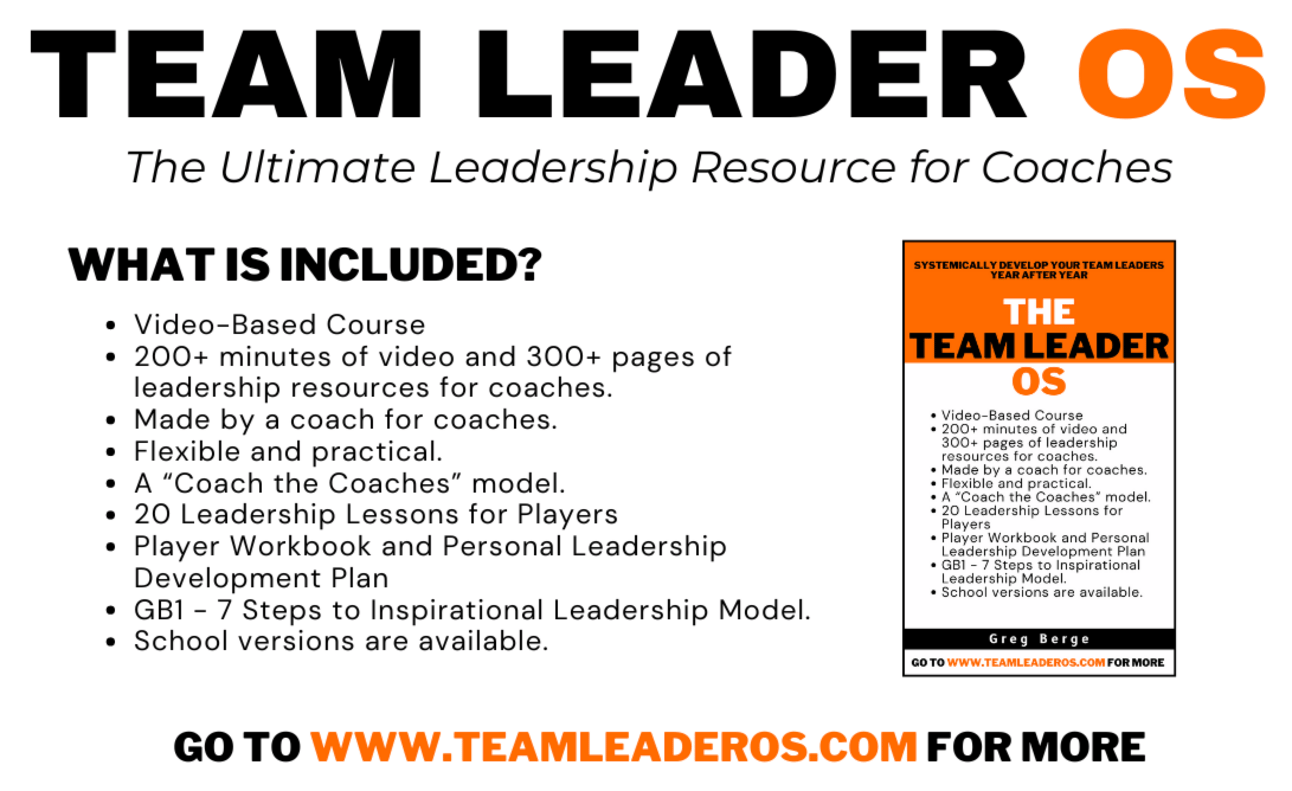Good morning! A warm welcome to the 77 new subscribers who joined 12,300+ others this week.
Here's what's coming:
The 4 Stages of Mental Toughness 🏆
William James Gold 🥇
Great “X” insight from Michael Jordan 🆇
Read Time ~ 4 minutes.
But first, save 25% on my NEW bundle, The Culture WINS Bundle. My Culture Course, Culture Curriculum, and Culture WINS books, all in one bundle!
💭ONE THOUGHT
The Four Stages of Mental Toughness
Mental toughness often separates the good from the great.
But how can coaches define, measure, and improve their athletes' mental toughness?
Let’s use Martin M. Broadwells's learning model, "the four levels of teaching," to help show the progression of mental toughness.
1. Unconscious Incompetence
At this stage, athletes are unaware of the mental aspects of their performance. They don’t yet understand how their mindset impacts their abilities.
Example: A young basketball player may miss crucial free throws because they don't realize their nerves and negative thoughts affect their performance.
What Coaches Can Do:
Education: Introduce the concept of mental toughness and its impact on performance.
Awareness Exercises: Use simple exercises like mindfulness or basic visualization to help athletes become aware of their thoughts and emotions during performance.
Check out how Phil Jackson taught the Chicago Bulls and Los Angeles Lakers Mindfulness.
2. Conscious Incompetence
Here, athletes recognize the importance of mental toughness and its effect on performance.
They see areas for improvement but might struggle to implement effective mental strategies.
Example: A soccer player understands they need to stay focused during penalty kicks but struggles to control their anxiety and pressure at the moment.
What Coaches Can Do:
Skill Development: Teach specific mental strategies like breathing techniques, positive self-talk, and goal-setting.
Support: Provide regular feedback and encourage athletes as they practice these new skills.
3. Conscious Competence
Athletes have developed mental skills and can apply them to improve performance. However, this requires focused effort and attention.
Example: A tennis player uses visualization and positive self-talk to stay calm and confident during matches, though it requires deliberate concentration.
What Coaches Can Do:
Practice Integration: Incorporate mental skills training into regular practice sessions.
Routine Building: Help athletes develop pre-performance routines to apply their mental skills consistently.
Dr. Alan Goldberg on the importance of pre-performance routines.
4. Unconscious Competence
Mental toughness becomes second nature. Athletes perform consistently at a high level with confidence and resilience, needing little conscious effort.
Example: An experienced gymnast performs complex routines flawlessly under pressure, with their mental skills so ingrained that they execute without overthinking.
What Coaches Can Do:
Maintenance: Encourage athletes to maintain their mental skills through regular practice and reflection.
Advanced Techniques: Introduce more advanced mental strategies to enhance performance and resilience.
Summary:
As coaches, guiding athletes through these stages will help them build a more resilient mindset and better achieve their full potential.
Unconscious Incompetence
Conscious Incompetence
Conscious Competence
Unconscious Competence
Good Luck!
THE TEAM LEADER OS

Teach your players how to LEAD.
This is why I created the Team Leader OS: The Ultimate Leadership Resource for Coaches. A practical and flexible leadership program for coaches to use with their team.
"After spending several hours watching ‘The Team Leader OS,’ I have learned more than I did my previous 37 years as a head coach when it comes to leadership. It had a huge impact on how I reflect on questions about leadership. This course contains so many great strategies to help you develop leaders and give them the tools to become successful. I highly recommend this course to EVERY coach, no matter what level you coach, because it will help you develop leaders!!!"
What is included?
20 Player Lessons (with video) to use with athletes year after year.
“Coach the Coaches” concept for coaches to use with their team.
Flexible, practical, and video based.
Over 200+ minutes of video and 300+ pages of leadership resources for coaches.
Over 20 bonus leadership video lessons.
Lifetime access.
So much more…
Click here to learn more. The Team Leader OS.
📜 TWO QUOTES
“There are always new, grander challenges to confront, and a true winner will embrace each one.”
"Act as if what you do makes a difference. It does."
🔗 LINKS OF THE WEEK
🎥 Video: The 1996 Michael Jordan Post-Game Interview That Shut Down The GOAT Debate (starts at 3:00 mark)
🎙️ Podcast: Coach Collins and I discuss the concept of Collective Leadership in this Basketball Leadership Podcast episode.
🆇 ICYMI: Two Pains in Life
📚 BOOKS, COURSES, BUNDLES, & FREE RESOURCES

Bundles:
The OS Bundle - Save $ when you get the Team Leader OS and Better Coach OS.
Mega Bundle - Get ALL of my paid resources, save BIG $.
Culture WINS Bundle - Get ALL of my Culture resources in place.
Super Bundle - Bundle all four of my books and save $.
Buy Two, Get One Free - My three most popular books.
Culture Wins Book Bundle - Both books for a discount.
ADs: Want site licenses for a school? Reply to this email for more.
Courses, Curriculum, and More:
Team Leader OS - Develop your team leaders year after year.
Better Coach OS - Masterclass course to be a better coach.
Culture Wins Curriculum - Growing curriculum to use with a ‘Captain’s Council’ concept in your school.
Culture WINS Mini-Course - A 37-minute Culture WINS Course for coaches.
Pre-Season Playbook - 33 pages to prepare for your season.
Off-Season Playbook - The season’s done, but the work is not.
Books:
Culture Wins - 50 ways to build a winning culture.
Culture Wins 2 - 50 MORE ways to build a winning culture.
Coaching Gold - Winning insight and wisdom for coaches.
Great Teams Better Leaders - Actionable ideas for coaches.
Paperback books (AMAZON) - All of my books are on Amazon.
Free Resources:
300-Hour Club - Offseason program used by all sports.
Pre-Season Perception Form - Use before the season begins.
Motivation Playbook - 30 pages of my favorite messages.
Coaching Wisdom - Wisdom gathered from over 300+ coaches.
Team Handbook Template - A template for your handbook.
Sports Parent Handbook - 20 commandments for sports parents.
Team Leader Roadmap - Give team leaders a roadmap to lead.
Great Teammate Rubric - What does a great teammate look like?
150 Coaching Acronyms - Gathered from my followers on X.
101 Coaching Phrases - Gathered from my followers on X.
100 Daily Doses of Culture - 100 phrases for coaches.
Find all FREE books and resources at gberge.gumroad.com.
👀 LOOKING FOR MORE?
Are you interested in Sponsoring an Issue? Reply to this email or click here: Sponsor Great Team Better Leaders.
Are you seeking a Culture or Leadership workshop for your team or school? Contact Greg for more information.
Are you interested in a 1:1 Coaching Call with Greg? Reply to this email to request more information.
Contact Me: Greg Berge, [email protected]
